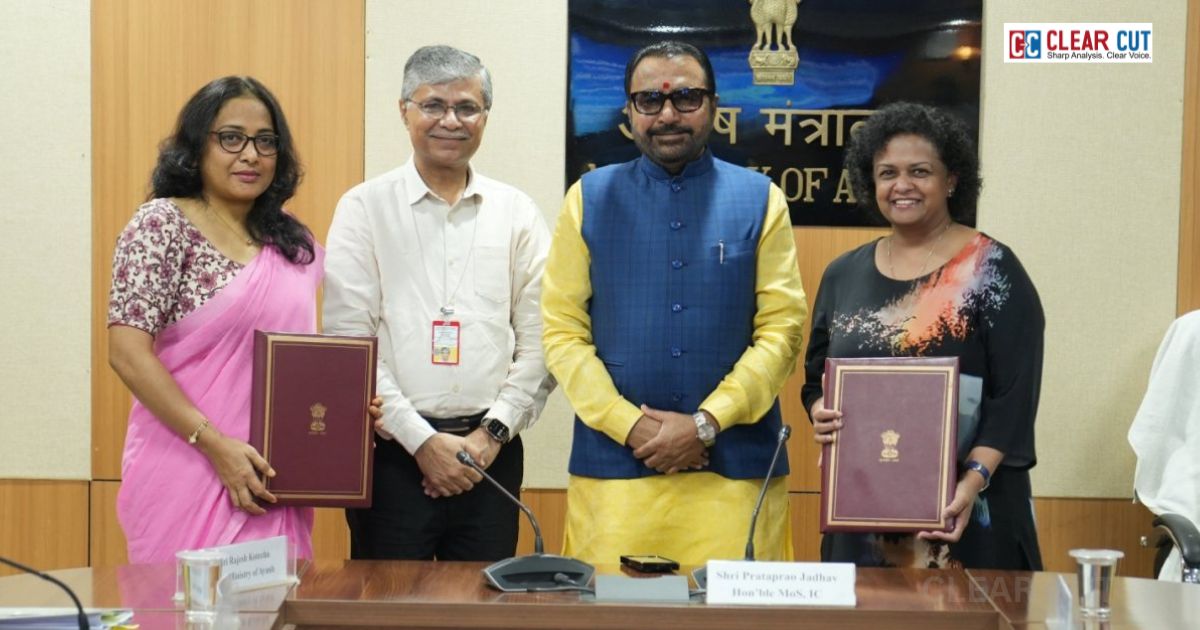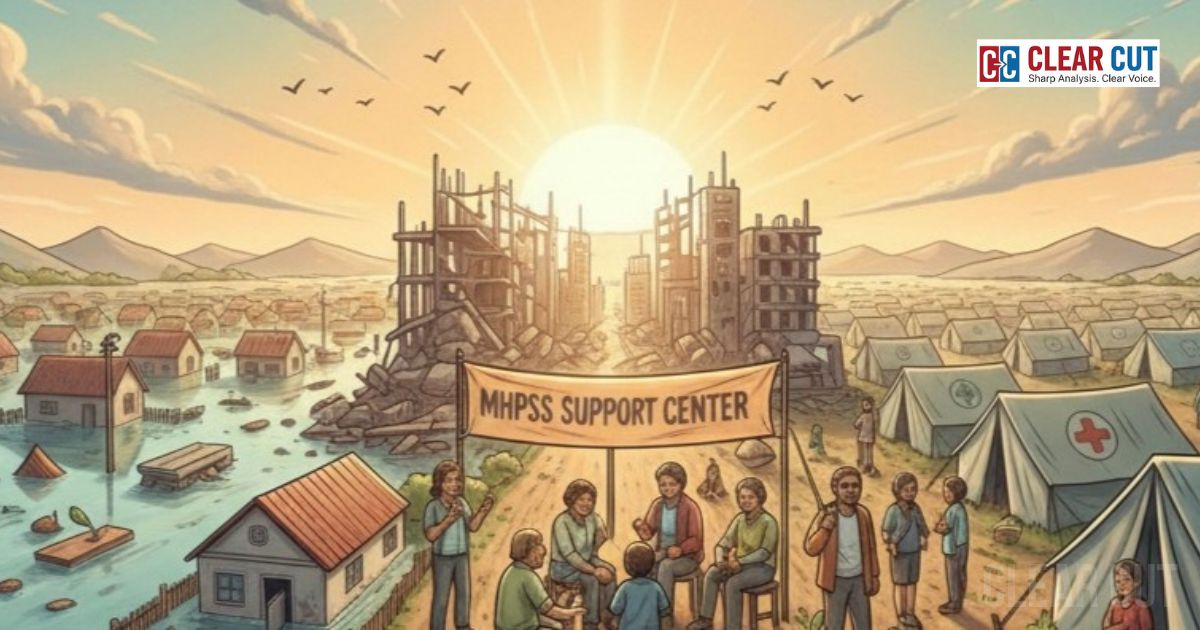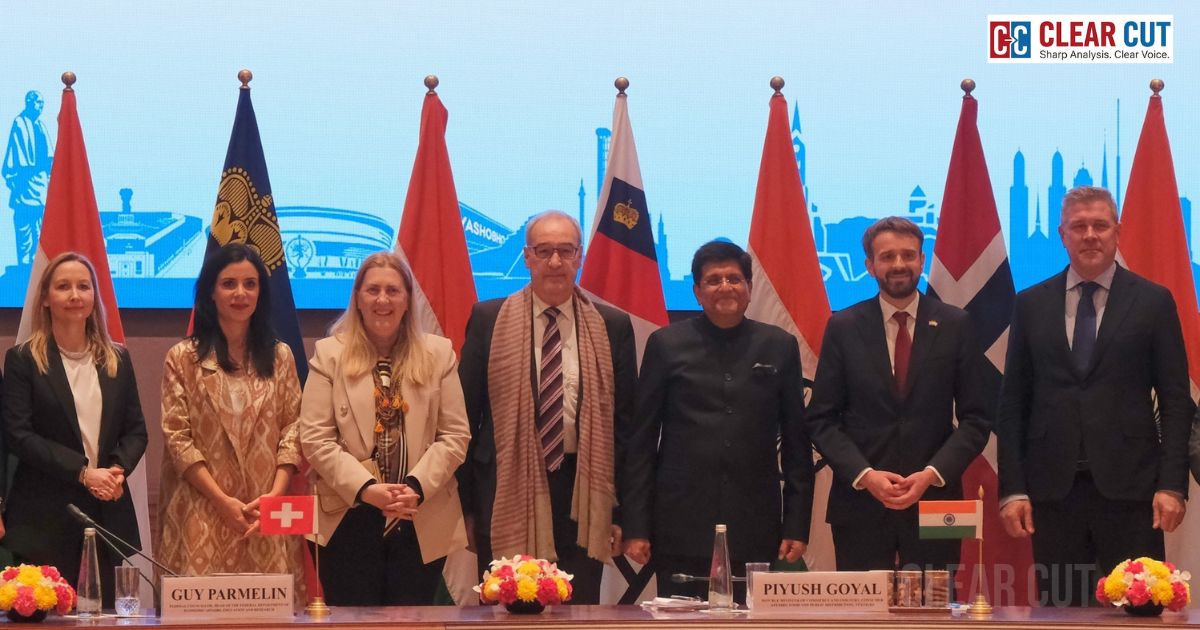Photo Credit: World Health Organization
Clear Cut Health Desk
New Delhi, UPDATED: Oct 04, 2025 05:28 IST
Written By: Antara Mrinal
The announcement of the MoU between the Government of India and the World Health Organization on 1st October 2025 marked the first step towards hosting the Second Global Summit on Traditional Medicine in New Delhi from 17-19 December 2025. The New Delhi signing ceremony took place with the involvement of the Indian health and traditional medicine sectors and signalled the beginning of more substantial health diplomacy collaborations on the international stage, specifically in the area of traditional medicine.
The MoU was signed in the presence of Indian and international health diplomacy stakeholders, Ministry of Health and Family Welfare, and the AYUSH Ministries. Dr. Shyama Kuruvilla, Acting Director of the WHO Global Traditional Medicine Centre, and Ms. Monalisa Das, Joint Secretary, Ministry of AYUSH, signed the MOU after their meeting with the summit planning group.
AYUSH, which stands for Ayurveda, Yoga and Naturopathy, Unani, Siddha and Homeopathy, is an Indian Government ministry to aid and manage India’s traditional systems of medicine. Since 2014, when it was restructured, the ministry has integrated traditional systems into multi-layered health systems designed for researched education and practiced integrated health. Currently, the ministry is helmed by Union Minister of State (Independent Charge) of AYUSH, and also Minister of State in the Ministry of Health & Family Welfare, Shri Prataprao Ganpatrao Jadhav. Daily administrative functions of the ministry as the Secretary of AYUSH is performed by Vaidya Rajesh Kotecha. The motto of the Summit, “Restoring balance for people and planet: The science and practice of well-being,” fosters the participation of more than 500 delegates in person from various corners of the world, in addition to various 5000 delegates joining virtually. An immersive expo of innovations and practices related to traditional medicine will complement the summit sessions allowing countries to showcase systems, research, technologies and processes relevant to their traditional and complimentary health systems.
Considering the adoption, in May 2025, by the 78th World Health Assembly of WHO’s new 10-year global strategy on traditional medicine, the timing of this summit is very relevant. The strategy calls for promoting the integration of traditional and complementary medicine into health systems globally, and the New Delhi summit offers a global forum to galvanise commitment and action from various stakeholders to fulfill that aim in part through gathering together for evidence-sharing, capacity-building and policy influencing.
What is unique about this partnership is that traditional medicine is now being formally recognized and advocated for in a WHO framework. Historically, WHO has prioritized conventional (biomedical) models in global health interventions. While WHO acknowledges traditional, complementary and integrative medicine (TCIM), the co-hosting of a summit with a national government constitutes, in a very real sense, is a symbolic and operational leap. For perhaps the first time, WHO is deeply associating itself with a largescale, global summit on traditional medicine, in partnership with a member state. It reflects a growing readiness to form bridges between conventional and traditional health paradigms that are subjected to scientific, policy and regulatory scrutiny.
With the summit reflecting its own strategy, the WHO acknowledges that traditional medicine is no longer just a cultural or national niche; it is being recognized as part of the global health architecture. India, with its institutional frameworks for AYUSH and deep history of traditional medical systems, will naturally become a site of global conversation. The co-hosting agreement reflects India’s aspiration to develop itself as a hub for global traditional medicine research, regulation and practice.
As the summit approaches, careful planning is underway. The Summit Planning Group, which serves as the oversight body for progress, will be managing in-person logistics, scientific content, participant engagement and virtual participation. The immersive expo is meant to be much more than merely a showcase; the expo intends to fuel co-national collaborations, foster innovations with traditional medicine, and unite grassroots practitioners with global health networks.
The implications for this collaboration between WHO and India could provide a moment of transformation for an important global health conversation. The summit could help reshape how we view healthcare, moving beyond just Western medicine to embrace traditional systems as valid and complementary approaches. It may provide Catalytic opportunity for fresh funding, research networks, and global policy frameworks that bring strong connection between systems of care from the ancients facing contemporaneous modern systems.




